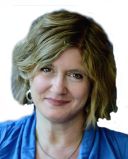Relationships
Love and Redemption in the Face of Loss
How saying goodbye to my father transformed my life
Posted May 3, 2012
Five years ago, I created a series of writing exercises to help people reimagine themselves as the heroes of their own life stories. My inspiration was a series of observations made during my years as an English major and a student of biblical texts. Not only did I notice that people inevitably project their own life experiences on to what they read, but also that they seemingly had an easier time empathizing with the protagonists’ struggles than their own. I was simply giving them permission and tools to step out of their own stories and check out the landscape.
My premise could be summarized as follows:
1) Our lives are unfolding stories;
2) We are potentially our own best and worst interpreters of what happens to us;
3) How we tell our story matters because it influences how we feel;
4) How we feel about our stories influences how they unfold;
5) As in stories, tension between the protagonist (us) and the antagonists (our obstacles) is fertile ground for character development; and
6) Writing in the third person voice can help us be more objective about our lives.
While it sounds simple enough, it wasn’t until my athletic 72-year-old father developed aggressive cancer and died this past February, that I actually had to consider whether I practiced what I preached.
My father’s unexpected death was the third cancer fatality in my small, immediate family in seven years. My beloved 61-year-old mother died of ovarian cancer in 2005 after an 11-year battle. My father was her primary caregiver. Several months after my mother’s death, my father met Vicki, a 50-something physical trainer my father, brother and I grew to love. In the summer of 2009, she was diagnosed with lung cancer and died a year later, also at 61.
And if my family’s story wasn’t sad enough, my father lost his leg to cancer in 1986, and my mother, her right eye in a freak art school accident before I was born. The family joke went something like this, “What has three eyes and three legs?” The answer: My parents!” Neither of the three-eyed, three-legged duo got a chance to see their two children married or dote on grandchildren. Only my father was able to witness the promise of his children’s budding careers after years of struggles. And when Vicki died, Marissa, her 21-year-old daughter and only child, was suddenly orphaned.
Which is why my somewhat Pollyannaish-premise was tested when I found myself facing the death of the man I always imagined walking me down the isle or attending one of my book readings. Did I truly believe that I had the power to transform my tragedies into triumphs simply by choosing to put a positive spin on my own story?
My answer surprised me: “yes.” But it requires reading between the lines. My relationship with my father was never an easy one. When we were younger, we butted heads. He could be bossy, judgmental, and self-righteous. “Benevolent despot,” was how one friend described him. He was more interested in sharing his opinions than soliciting mine. I challenged him, and made my mother my confidante. When I graduated college, I moved to San Francisco, putting several cities and mountain ranges between us.
My father and I grew closer after my mother passed. I had already moved back to New York, and we found ourselves spending more time together. We had dinner, went biking, saw shows… and talked. He had found love again and seemed genuinely happy with Vicki. I was older, had done my own personal growth work and had come to appreciate my father’s positive attributes without taking his idiosyncrasies personally.
But it wasn’t until my father suddenly became ill, that I would be forced to put my love to the test. Seven years ago, I had spent three heart-wrenching months at my mother’s bedside in hospice care. http://www.aish.com/sp/so/48923857.html Vicki’s death had come quicker, though her cancer had been no less merciless.
When I fast forward and step outside my story, I see myself curled up on the couch in my father’s hospital room while the hospice admitting nurse explains that he will need 24-hour supervision to receive services at home. My brother is immersed in a rigorous Master’s program at Cornell University. I have been my father’s primary health advocate for the past three months, flying back and forth between my life in New York and Florida, where he relocated just a few months prior to his diagnosis. Hiring a full-time aide is unthinkable, even if it were affordable.
So I decide to take a leave of absence—from my private practice, my friends, my community, and my frenetic but full life in Manhattan—to care for my father. It’s been 18 years since we lived under the same roof as my provider, only now I am providing care to him.
It’s hard to describe the two months that follow. They are not easy. My father is no less demanding in pain and than he is in health. I have been thrust into the role of administering his meds, fixing his meals, cleaning his house, learning to manage his finances, managing hospice visits, and holding his hand, both figuratively and literally, through waves of fear and pain. I have never been a parent, but the irony of the turned tables is not lost on me. Suddenly I am like a single mother to a needy 72-year-old, as well as a housewife… without any of the conjugal benefits.
Despite the stress, I feel my heart softening and expanding. My father and I share many moments of tears and laughter. The wear and tear of life (and death) has softened our rougher edges. We come to know and appreciate each other’s minds, emotions, and strengths more deeply. Preparing his drink with the perfect proportion of cranberry juice to water becomes an act of love. As old friends and long lost relatives circle back into our lives, we bear witness to what my father describes as the “Tree of Life,” the mysterious interconnectedness of the universe. When my brother comes down to help, our icy relationship begins to thaw as we come to know each other as adults. Marissa visits too, and I find myself inspired by her resilience and generosity.
As the rabbi who would later perform my father’s memorial service stated, “Bernie was like an onion. The more you boil it, the sweeter it gets.” And life boiled all of us quite a bit. One evening, my father shares that he can’t believe that even in his misery, he is learning and growing. “What are you learning?” I inquire. “That people have found a way to love me and that I have found a way to love them.” That’s all he ever wanted… that’s all anyone ever wants, isn’t it?
I realize there are many ways to spin my story. Mine is but one version. But as the narrator, the protagonist, and interpreter, I exercise my right to read it as a story of love and redemption… the prodigal daughter perhaps.
While I claim the authorships rights to my family epic, I concede that many tragic stories are beyond my positive spinning capacity, though others may possess such talents. I also recognize that the story of my father’s death is not over. I am only three months into grief, and I am familiar enough with its territory to know that it will take vigilance to steer clear of the pits of darkness and self-pity that beckon in moments of heartbreak. I am not immune to bouts of fear and skepticism. Had I been given a choice, I would have perhaps chosen another storyline for my life’s lessons. But for now, I embrace the gifts of my bittersweet fortune.
That’s my story, and I’m sticking to it.




